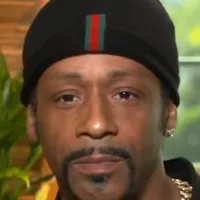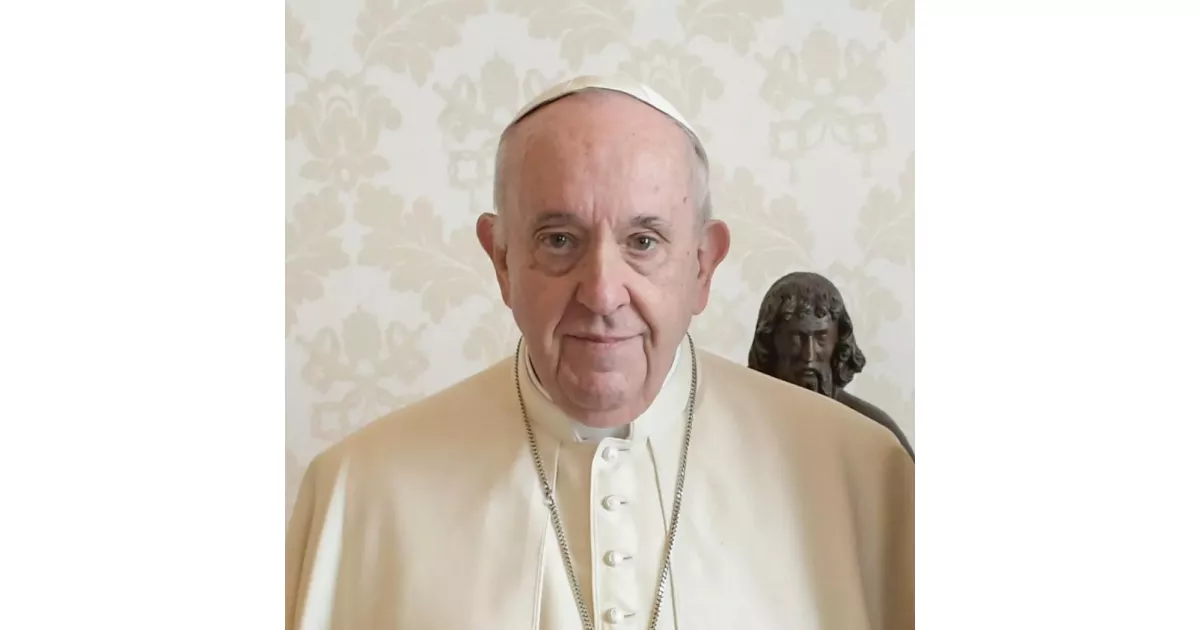Public opinion and media debates around Pope Francis—discover key moments of controversy.
Pope Francis served as the head of the Catholic Church and sovereign of the Vatican City State from March 13, 2013, until his death in 2025. He held the distinction of being the first Jesuit pope, the first pope from Latin America, and the first pope born or raised outside of Europe since the 8th century. His papacy marked a significant shift in the Church's leadership and geographical origins.
1976: Allegations Regarding Kidnapping of Jesuit Priests
In 1976, during Argentina's Dirty War, Bergoglio faced allegations regarding the Argentine Navy's kidnapping of two Jesuit priests, Orlando Yorio and Franz Jalics. Bergoglio was reported to have failed to protect them. They were found alive months later outside Buenos Aires, drugged and partially unclothed.
1976: Context of the Detention of Yorio and Jalics
In early 1976, according to historian Uki Goñi, the military junta still had a good image among society, and the scale of the political repression was not yet widely known. Bergoglio would have had little reason to suspect that the detention of Yorio and Jalics could end in their deaths.
1999: Yorio's Accusation Against Bergoglio
In a 1999 interview, Orlando Yorio accused Bergoglio of effectively handing him and Franz Jalics over to death squads by declining to tell the authorities that he endorsed their work and stated that Bergoglio did nothing to free them.
September 2005: Published Claims about Bergoglio in Conclave
In September 2005, claims were published that Jorge Mario Bergoglio had been the runner-up and main challenger to Cardinal Ratzinger at the 2005 papal conclave.
2005: Criminal Complaint Filed Against Bergoglio
In 2005, Myriam Bregman, a human rights lawyer, filed a criminal complaint against Bergoglio, as superior in the Society of Jesus of Argentina, accusing him of actual involvement in the 1976 kidnapping of Jesuit priests Orlando Yorio and Franz Jalics. The complaint was eventually dismissed.
2008: Call for National Reconciliation
In 2008, Bergoglio called for national reconciliation during disturbances in Argentina's agricultural regions, which the government interpreted as a support for anti-government demonstrators, further straining his relationship with the government.
2010: Commissioned Study of Father Julio César Grassi
In 2010, then-Cardinal Bergoglio commissioned a study which concluded that Father Julio César Grassi, a priest convicted of child sexual abuse, was innocent, that his victims were lying, and that the case against him never should have gone to trial.
2012: Defrocking of Mauro Inzoli
In 2012, Francis's predecessor Benedict defrocked Mauro Inzoli, an Italian priest accused of child sexual abuse.
2014: Reversal of Laicization for Mauro Inzoli
In 2014, Pope Francis reversed the decision to laicize Mauro Inzoli, ordering that he remain a priest but be removed from public ministry and ordered to retire to "a life of prayer and humble discretion."
2014: Vatican Criticizes News Agencies
In 2014, the Vatican criticized some Italian news agencies and Agence France-Presse for reporting that a comment Pope Francis made suggested an opening toward acceptance of same-sex marriage or civil unions, stating the remark was taken out of context.
2015: Criticism for Supporting Bishop Juan Barros
In 2015, Pope Francis was criticized for supporting Chilean bishop Juan Barros who was accused of covering up Catholic Church sexual abuse cases in Chile, including crimes committed against minors.
April 2016: Publication of Amoris laetitia
On 8 April 2016, Pope Francis published his second apostolic exhortation, Amoris laetitia, remarking on love within the family, which led to controversy.
2016: Creation of Study Commission on the Women's Diaconate
In 2016 Pope Francis created a Study Commission on the Women's Diaconate to research the role of female deacons in early Christianity.
2016: Conviction of Mauro Inzoli
In 2016, Mauro Inzoli was convicted of sexually abusing children in Italian civil court and sentenced to prison.
March 2017: Upholding of Conviction Against Julio César Grassi
In March 2017, the Supreme Court of Argentina upheld the conviction and prison sentence against Father Julio César Grassi, a priest convicted of child sexual abuse.
July 2017: Filial Correction of Francis
In July 2017, a group of clergy, academics, and laymen signed a "Filial Correction" of Pope Francis, criticizing him for allegedly promoting heretical propositions.
September 2017: Admission of Mishandling the Inzoli Case
In unscripted remarks to the Pontifical Commission for the Protection of Minors in September 2017, Pope Francis admitted that he mishandled the Mauro Inzoli case, acknowledging he made an error in judgment.
October 2017: Vatican stance on Catalan independence
In October 2017, after the Catalan independence referendum, Pope Francis communicated to the Spanish ambassador to the Holy See that the Vatican would not recognize secessionist or self-determination movements not resulting from decolonization.
July 2018: McCarrick resigned from the College of Cardinals
In July 2018, Theodore McCarrick resigned from the College of Cardinals following renewed allegations of sexual misconduct.
October 2018: Review of Church's "institutional knowledge and decision-making" related to McCarrick
In October 2018, Pope Francis ordered a review of the Catholic Church's "institutional knowledge and decision-making" pertaining to Theodore McCarrick.
2018: Acknowledgement of Errors and Resignations of Chilean Bishops
In 2018, Pope Francis acknowledged he had made "grave errors" in judgment about Bishop Juan Barros, apologized to the victims and launched a Vatican investigation that resulted in the resignation of three Chilean bishops: Barros, Gonzalo Duarte, and Cristián Caro.
2018: Deal with Vatican
In 2018, the Chinese government repeatedly violated the deal with the Vatican.
February 2019: Acknowledgment of clergy abuse and convening summit
In February 2019, Pope Francis acknowledged that priests and bishops were sexually abusing religious sisters, and he addressed the clergy sex abuse scandal by convening a summit on clergy sexual abuse in February 2019.
February 2019: Summit on sexual abuse convened
In February 2019, Pope Francis convened a summit on sexual abuse organized by Hans Zollner; some survivors expressed disappointment with the lack of concrete rules.
December 2019: Abolishment of "pontifical secrecy" privilege in sexual abuse cases
In December 2019, Pope Francis abolished the "pontifical secrecy" privilege in sexual abuse cases, clarifying that bishops do not need authorization from the Vatican to turn over canonical trials materials to civil law enforcement authorities.
2019: Commission Unable to Reach Consensus on Deaconesses
In 2019, Pope Francis said that the Study Commission on the Women's Diaconate was unable to come to a consensus.
April 2020: Creation of New Commission on Women's Diaconate
In April 2020, Pope Francis empaneled a new commission, led by Cardinal Giuseppe Petrocchi with a new membership, to study the issue of deaconesses.
November 2020: Release of Vatican report on McCarrick's career
In November 2020, Pope Francis authorized the release of the Vatican's report, which detailed a two-year investigation into Theodore McCarrick's career, largely faulting Pope John Paul II.
2020: Rupnik Preaches Lenten Meditation
In 2020, Marko Rupnik preached a Lenten meditation for priests working in the Roman Curia, including Pope Francis, before accusations of abuse became widely known.
July 2021: Traditionis custodes issued
In July 2021, Pope Francis issued Traditionis custodes, reversing Benedict XVI's decision on the Traditional Latin Mass and imposing new restrictions, drawing criticism from prelates and lay faithful.
November 2021: Gratitude to Journalists for Uncovering Child Sexual Abuse
In November 2021, Pope Francis thanked journalists for their work in uncovering child sexual abuse scandals in the church and giving voice to abuse victims.
January 2022: Private Meeting with Marko Rupnik
In January 2022, Pope Francis met privately with Marko Rupnik, who was later accused of psychological, spiritual, and sexual abuse.
July 2022: Apostolic Journey to Canada and Apology for Indigenous Abuses
In July 2022, Pope Francis made an apostolic journey to Canada, where he expressed sorrow, indignation, and shame over the church's abuse of Canadian Indigenous children in residential schools and apologized for the church's role.
September 2022: Francis calls for negotiated settlement in Ukraine war
In September 2022, Pope Francis stated that Ukraine had the right to defend itself in the war with Russia, but he also urged for a negotiated settlement, advocating for dialogue with all parties involved, even the aggressor. He suggested that arms transfers to Ukraine could be morally acceptable under certain conditions.
November 2022: Cardinal Jean-Pierre Ricard Admits to Sexual Abuse
In November 2022, French Cardinal Jean-Pierre Ricard admitted to sexually abusing a 14-year-old girl, prompting an investigation. Pope Francis condemned sexual abuse but did not deprive Ricard of his status.
November 2022: Vatican accuses China of violating agreement
In November 2022, the Vatican publicly accused China of violating their agreement by installing John Peng Weizhao as an auxiliary bishop without Vatican approval.
2022: Apology for Church's Role in Cultural Genocide
In 2022, Pope Francis apologized for the Catholic Church's role in the cultural genocide of Canadian Indigenous peoples in residential schools.
April 2023: China installs bishop of Shanghai without Vatican approval
In April 2023, the Chinese government installed Joseph Shen Bin as bishop of Shanghai without Vatican approval, further straining relations between the Vatican and China.
December 2023: Fiducia supplicans issued
In December 2023, the Dicastery for the Doctrine of the Faith, with Pope Francis's approval, issued Fiducia supplicans, allowing Catholic priests to perform "spontaneous blessings" of same-sex couples and other couples in "irregular relationships".
2023: Apparent Rejection of Women Deacons
In late 2023, Pope Francis appeared to reject the idea of women deacons, saying that "holy orders is reserved for men."
2023: Milei's Criticism of Francis
Prior to his election in 2023, Javier Milei was critical of Francis, describing him with disparaging terms, sparking controversy among Catholics.
January 2024: African episcopal conferences reject blessings for same-sex couples
On January 11, 2024, Cardinal Fridolin Ambongo Besungu announced that all episcopal conferences in Africa, represented in SECAM, would reject blessings for same-sex couples, stating that the extra-liturgical blessings proposed in the declaration...cannot be carried out in Africa without exposing themselves to scandals". This decision followed Fiducia supplicans sparking considerable controversy among Catholics.
2024: Apparent Rejection of Women Deacons
In late 2024, Pope Francis appeared to reject the idea of women deacons, saying that "holy orders is reserved for men."
January 2025: Establishment of Independent Tribunal
In January 2025, Cardinal Víctor Manuel Fernández confirmed that the Dicastery for the Doctrine of the Faith (DDF) was working to establish an independent tribunal to move forward with judicial proceedings regarding the Marko Rupnik case.
February 2025: Response to US bishops
In February 2025, following mass deportations and cuts to international aid by the new US administration, Pope Francis wrote "an extraordinary and excoriating response to US bishops".
Mentioned in this timeline

Donald John Trump is an American politician media personality and...

Instagram is a photo and video-sharing social networking service owned...

Vladimir Vladimirovich Putin is a Russian politician and former intelligence...
Ukraine is a large country in Eastern Europe second in...
Venezuela officially the Bolivarian Republic of Venezuela is a country...
Sudan officially the Republic of the Sudan is a country...
Trending
4 months ago Daytona 500 Date Announced for 2027, Creates Fan Uproar Over Scheduling Conflicts

Micah Katt Williams is a well-known American stand-up comedian and actor He is recognized for his roles in various films...
11 months ago Latvia Imposes Entry Ban on Citizens from Russia and Belarus Amid Tensions

9 months ago Reese Olson's desire fuels Tigers' Game 41 as they aim for series win.

7 months ago Courtney Love claims to be the first with a Super Fuzz Big Muff.

3 months ago Britney Spears Deletes Instagram Amidst Concern: A Deep Dive
Popular

Kid Rock born Robert James Ritchie is an American musician...
The Winter Olympic Games a major international multi-sport event held...

XXXTentacion born Jahseh Dwayne Ricardo Onfroy was a controversial yet...

Barack Obama the th U S President - was the...

Melania Trump a Slovenian-American former model has served as First...

Michael Jordan often known as MJ is a businessman and...
